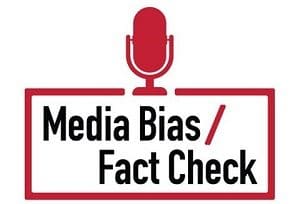
PRO-SCIENCE
These sources consist of legitimate science or are evidence-based through the use of credible scientific sourcing. Legitimate science follows the scientific method, is unbiased, and does not use emotional words. These sources also respect the consensus of experts in the given scientific field and strive to publish peer-reviewed science. Some sources in this category may have a slight political bias but adhere to scientific principles. See all Pro-Science sources.
- Overall, we rate PLOS Pro-Science based on the publication of peer-reviewed scientific journals.
Detailed Report
Bias Rating: PRO-SCIENCE
Factual Reporting: HIGH
Country: USA (44/180 Press Freedom)
Media Type: Journal/Website
Traffic/Popularity: High Traffic
MBFC Credibility Rating: HIGH CREDIBILITY
History
PLOS (for Public Library of Science) is a nonprofit open-access science, technology, and medicine publisher, innovator, and advocacy organization with a library of open access journals and other scientific literature under an open content license. It launched its first journal, PLOS Biology, in October 2003 and publishes seven journals.
PLOS publishes the peer-reviewed research journals PLOS Biology, PLOS Climate, PLOS Computational Biology, PLOS Digital Health, PLOS Genetics, PLOS Global Public Health, PLOS Medicine, PLOS Neglected Tropical Diseases, PLOS ONE, PLOS Pathogens, PLOS Sustainability and Transformation, and PLOS Water.
Read our profile on the United States government and media.
Funded by / Ownership
The Public Library of Science, a nonprofit, owns and publishes PLOS.org. Donations generate revenue. As with all open-access publishers, they do not charge fees for the journals but instead charge the authors a fee to publish their work, ranging from hundreds to thousands of dollars. We explain this in more detail below.
Analysis / Bias
In review, PLOS is an open-access library of science journal articles. Open Access Journals typically charge the author a fee to publish their work after a peer review. However, there has been much controversy surrounding this publishing method as many journals do not peer review. This is called a Predatory Journal or Publisher. In other words, though it may look like a rigorous peer-reviewed scientific study, it is NOT. I mention this because when you Google “open access journals,” you will see many links for Predatory Journals. PLOS is NOT a Predatory publisher and is credible. All of their articles are peer-reviewed, much like PubMed. To see a complete list of alleged Predatory Publishers, check out Beall’s List.
Failed Fact Checks
- None in the Last 5 years
Overall, we rate PLOS Pro-Science based on the publication of peer-reviewed scientific journals. (D. Van Zandt 12/04/2017) Updated (12/01/2021)
Source: https://www.plos.org/
Last Updated on June 30, 2023 by Media Bias Fact Check
Do you appreciate our work? Please consider one of the following ways to sustain us.
or
Left vs. Right Bias: How we rate the bias of media sources

